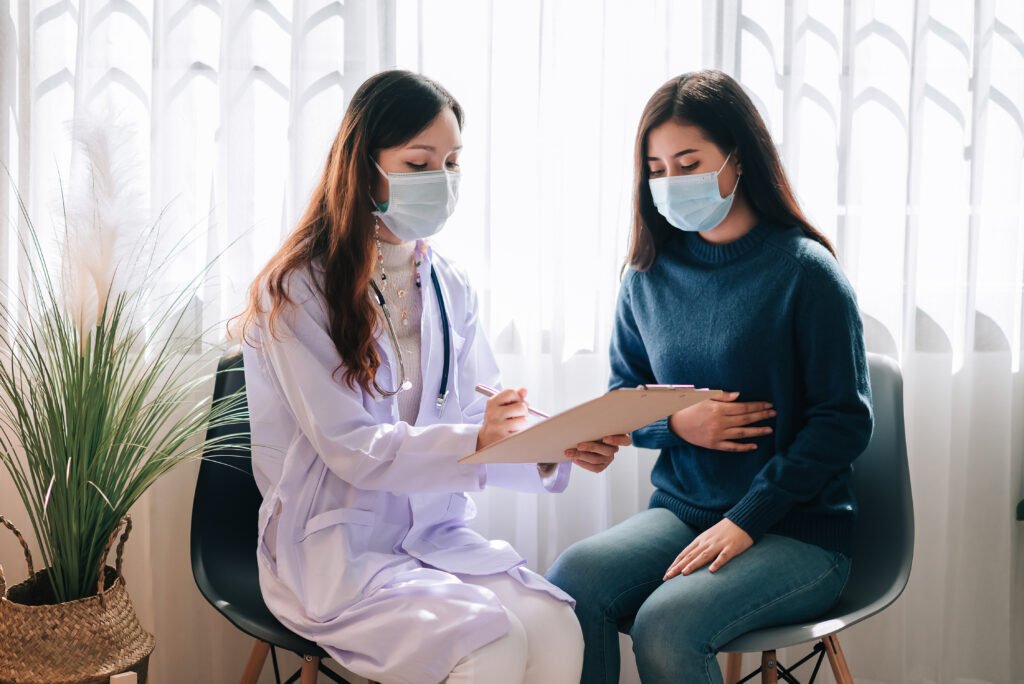
Early Signs of Stomach Cancer in Men and Women
Early Signs of Stomach Cancer in Men and Women: Subtle Symptoms, Risk Factors, and When to Seek Medical Help
Stomach cancer, also known as gastric cancer, often develops silently. In many cases, it progresses for months or even years before people notice any concerning symptoms. Because early detection can significantly improve survival rates, understanding the early signs, risk factors, and the importance of timely medical attention is crucial.
This article explores the subtle symptoms of stomach cancer in both men and women, highlights the major risk factors, and explains when to seek medical help.
Understanding Stomach Cancer
Stomach cancer begins when abnormal cells form in the lining of the stomach. Over time, these cells multiply and grow into tumors. Unfortunately, the early stages often cause mild or nonspecific discomfort, making it easy to mistake the condition for common digestive issues like indigestion or acid reflux.
Transitioning from these general concerns to more specific symptoms, let’s look at the early warning signals that men and women should watch for.
Early Signs of Stomach Cancer in Men and Women
1. Persistent Indigestion or Heartburn
Occasional heartburn is common, but frequent indigestion that doesn’t improve with lifestyle changes or over-the-counter medication can be an early symptom. Both men and women may dismiss this as simple acidity, but recurring episodes could indicate something more serious.
2. Bloating After Small Meals
Another subtle sign is feeling full quickly or experiencing uncomfortable bloating even after eating a small amount. This symptom occurs because the tumor may affect the stomach’s ability to expand normally.
3. Unexplained Nausea and Vomiting
While nausea is often associated with infections or food poisoning, chronic nausea without a clear cause deserves attention. In some cases, patients may also vomit small amounts of blood, which should never be ignored.
4. Loss of Appetite and Sudden Weight Loss
If you notice a decline in appetite or an unexpected drop in weight without trying, it could be a red flag. Cancer cells often change the body’s metabolism, making weight loss more rapid.
5. Stomach Pain or Discomfort
Mild, recurring upper abdominal pain or a burning sensation may also be a warning sign. Many people mistake it for gastritis, but if the pain persists, medical evaluation is important.
6. Fatigue and Weakness
Cancer can cause the body to use up energy reserves quickly. Both men and women may feel constant fatigue, weakness, or low energy levels, even without strenuous physical activity.
Risk Factors for Stomach Cancer
Not everyone who experiences these symptoms has stomach cancer. However, understanding risk factors can help identify who might be more vulnerable.
1. Age and Gender
Stomach cancer is more common in people over 50 years old, and men tend to have a slightly higher risk compared to women.
2. Family History
A strong family history of stomach cancer or genetic conditions like Lynch syndrome can raise the likelihood of developing the disease.
3. Diet and Lifestyle
A diet high in salty, smoked, or processed foods increases risk, while fresh fruits and vegetables may help protect the stomach lining. In addition, smoking and heavy alcohol use are strong contributing factors.
4. Infections
Chronic infection with Helicobacter pylori, a type of bacteria that causes ulcers, is strongly linked to gastric cancer.
5. Medical Conditions
People with pernicious anemia, chronic gastritis, or stomach polyps also face a higher risk.
Differences Between Men and Women
While the core symptoms of stomach cancer are similar, studies suggest some differences in how they appear:
- Men often report persistent indigestion, heartburn, and upper abdominal pain earlier.
- Women are more likely to notice appetite changes and unexplained weight loss before other symptoms appear.
Recognizing these gender-based tendencies can encourage both men and women to take subtle discomforts more seriously.
When to Seek Medical Help
Many digestive problems are harmless and temporary. However, you should consult a doctor immediately if you notice:
- Indigestion or bloating that lasts for more than a few weeks
- Unexplained and consistent weight loss
- Vomiting blood or noticing black, tarry stools
- Persistent nausea and abdominal pain
- Extreme fatigue that doesn’t improve with rest
Early medical evaluation can rule out less serious causes—or catch stomach cancer in its early stages, when treatment is more effective.
How Doctors Diagnose Stomach Cancer
If symptoms raise concern, doctors may recommend diagnostic tests such as:
- Endoscopy: A thin tube with a camera checks for abnormal growths in the stomach.
- Biopsy: A small tissue sample is taken during endoscopy for laboratory analysis.
- Imaging tests: CT scans, MRI, or ultrasound may help identify the extent of the disease.
These procedures help confirm whether symptoms are cancer-related or caused by another condition.

Importance of Early Detection
The outlook for stomach cancer greatly depends on when it is diagnosed. When detected early, treatment options like surgery, chemotherapy, targeted therapy, or immunotherapy can be highly effective. On the other hand, late-stage diagnosis reduces survival chances significantly.
This is why listening to your body and acting on subtle signs can make all the difference.
Final Thoughts
Stomach cancer does not always announce itself loudly. Instead, it often hides behind common digestive issues like heartburn, bloating, or appetite changes. Men and women should stay alert to these subtle signals, especially if they persist for weeks.
Understanding personal risk factors, adopting a healthy diet, and avoiding tobacco and alcohol can lower your chances. Most importantly, seeking timely medical help ensures that if stomach cancer is present, it can be treated early.
In summary, awareness is the first step toward prevention and recovery. Paying attention to early signs, recognizing risks, and consulting a doctor without delay could save your life—or the life of someone you love.
